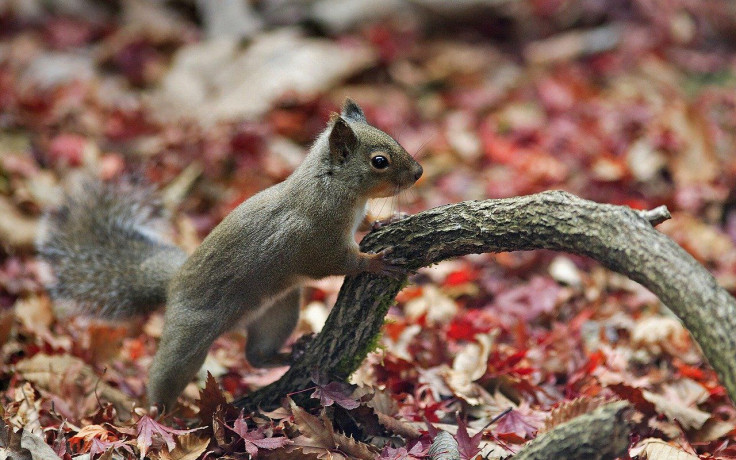Japanese Squirrel Spotted Eating Well-Known Poisonous Mushrooms
KEY POINTS
- A squirrel was spotted "routinely" eating poisonous mushrooms, or toadstools
- It's possible that the squirrels have to safely eat them
- Another possibility is that the squirrels help disperse the poisonous mushrooms' spores
Toadstools are poisonous, inedible mushrooms, but scientists have spotted a squirrel that appears to be routinely feeding on them. Could the mushrooms be benefiting from this?
Both mushrooms and toadstools are fungi that come from spores, and they are quite alike scientifically. In casual speech, the term "mushroom" is generally used to refer to edible mushrooms, while "toadstool" refers to the mushrooms that are toxic and poisonous.
However, Professor Kenji Suetsugu, of Kobe University Graduate School, and photographer Koichi Gomi spotted what appeared to be a Japanese squirrel "routinely" feeding on toadstools in Japan's Nagano Prefecture, Kobe University said in a news release.
The squirrel fed on fly agaric and panther cap – both well-known toadstools of the Amanita genus – and kept coming back to the same area for several days to eat more. In their paper describing the find, published in Frontiers in Ecology and the Environment, the pair even shared photos of the squirrel eating the toadstools.
The behavior was quite interesting since it was believed that fungal toxins evolved so as to prevent animals from eating them. In humans, there have even been some "serious" instances of poisoning, with the cases involving hallucinations, seizures, deliria and even death, although the latter is said to be "rare."
The researchers say the squirrels may have adapted to eat these poisonous fungi safely. However, it's also possible that the toadstool species also benefit from this process as the squirrels will spread their spores through their digestive tracts.
"Perhaps Amanita mushrooms facilitate mutualisms with toxin-resistant squirrels, which can disperse viable spores, while deterring toxin-susceptible enemies, which could negatively impact spore survival," the authors wrote. "If so, potential dispersal of fungal spores by squirrels is analogous to a seed dispersal mutualism, in which a plant offers a reward to an animal as a seed disperser."
However, there are still quite a few questions that need to be answered, the authors said. For instance, further research could help uncover how the squirrels eat these toadstools safely and whether they play a role in dispersing Amanita spores.

© Copyright IBTimes 2024. All rights reserved.





















